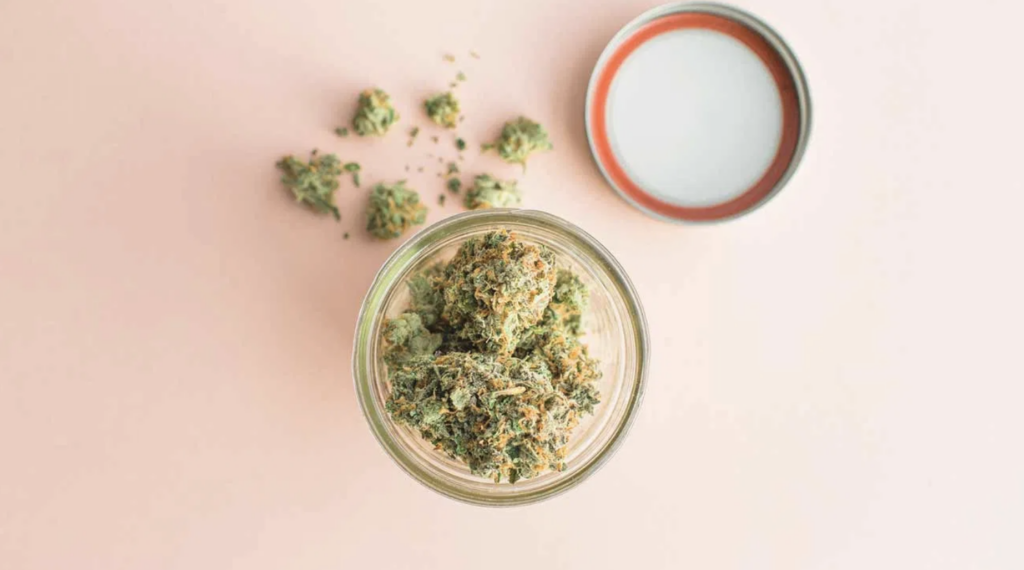CBD (cannabidiol) and THC (tetrahydrocannabinol) are two of the most well-known and studied compounds found in cannabis plants. They belong to a group of natural compounds known as cannabinoids, which interact with the endocannabinoid system (ECS) in the human body. While both CBD and THC are derived from cannabis, they have distinct properties and effects, leading to different uses and legal status. In this comprehensive guide, we will explore the differences between CBD and THC, their effects on the body, medical applications, legal status, and safety considerations.
The Chemical Structure of CBD and THC
CBD and THC have the same molecular formula (C21H30O2), consisting of 21 carbon atoms, 30 hydrogen atoms, and two oxygen atoms. However, their atomic arrangements are slightly different, leading to distinct effects on the body.
Psychoactive Effects: THC vs. CBD
The most significant difference between THC and CBD is their psychoactive effects. THC is the compound responsible for the “high” associated with cannabis use. When THC interacts with the ECS, it binds to CB1 receptors, primarily found in the brain and central nervous system. This binding triggers the release of dopamine, leading to feelings of euphoria and altered perception.
On the other hand, CBD is non-psychoactive, meaning it does not produce a “high” sensation. CBD does not directly bind to CB1 receptors, and it may even counteract the psychoactive effects of THC by inhibiting its binding to these receptors. CBD’s interaction with the ECS is more complex and involves various receptor types, which contributes to its diverse effects on the body.
Medical Uses and Benefits: CBD vs. THC
Both CBD and THC have shown promising potential for various medical applications. However, their therapeutic effects differ due to their distinct interactions with the endocannabinoid system and other biological pathways.
CBD Medical Uses and Benefits
Pain Relief: CBD has been studied for its analgesic properties and its potential to alleviate chronic pain, such as neuropathic pain and inflammatory pain.
- Anxiety and Depression: CBD may help reduce anxiety and improve symptoms of depression by affecting serotonin receptors in the brain.
- Epilepsy: CBD is an FDA-approved medication for treating specific types of epilepsy, such as Dravet syndrome and Lennox-Gastaut syndrome, in the form of Epidiolex.
- Neuroprotective Properties: Studies suggest that CBD may have neuroprotective effects, potentially benefiting individuals with neurodegenerative conditions like Alzheimer’s and Parkinson’s disease.
- Anti-Inflammatory and Antioxidant Effects: CBD’s anti-inflammatory properties may be beneficial for conditions like arthritis, multiple sclerosis, and inflammatory bowel disease.
THC Medical Uses and Benefits
Pain Relief: THC is also effective in reducing pain, especially neuropathic pain and pain associated with muscle spasms.
- Nausea and Vomiting: THC is commonly used to alleviate chemotherapy-induced nausea and vomiting.
- Appetite Stimulation: THC can increase appetite, making it beneficial for individuals with appetite loss or cachexia.
- Glaucoma: THC has been studied for its potential to reduce intraocular pressure in individuals with glaucoma.
- Muscle Spasticity: THC may help reduce muscle spasticity in conditions like multiple sclerosis.
Legal Status: CBD vs. THC
The legal status of CBD and THC varies significantly in different parts of the world. Generally, CBD extracted from industrial hemp plants containing less than 0.3% THC is legal in many countries, including the United States. However, the legal status of CBD can vary between states and countries, so it’s essential to be aware of local laws and regulations.
On the other hand, THC remains a controlled substance in many places due to its psychoactive effects and potential for abuse. In some regions, medical marijuana programs allow access to THC-containing products for qualifying patients, while recreational use may still be prohibited.
Safety Considerations: CBD vs. THC
Both CBD and THC are generally considered safe for most individuals when used responsibly. However, there are some safety considerations to be aware of:
CBD Safety Considerations
- Drug Interactions: CBD may interact with certain medications, particularly those metabolized by the liver’s cytochrome P450 enzyme system. It’s crucial to consult with a healthcare professional if you are taking prescription medications.
- Quality and Purity: To ensure safety, it’s essential to purchase CBD products from reputable sources that provide third-party lab testing for quality and purity.
- Side Effects: While generally well-tolerated, some individuals may experience side effects such as dry mouth, drowsiness, or changes in appetite.
THC Safety Considerations
- Psychoactive Effects: The psychoactive effects of THC may impair cognitive and motor functions, making it important to avoid activities that require focus and attention, such as driving, when under the influence.
- Risk of Dependence: Regular use of THC-containing products can lead to dependence and withdrawal symptoms.
- Psychiatric Effects: In some individuals, high doses of THC may trigger anxiety, paranoia, or psychotic symptoms, especially in those predisposed to mental health disorders.
- Adolescent Brain Development: THC use during adolescence may negatively impact brain development and cognitive function.
Conclusion
CBD and THC are two prominent cannabinoids found in cannabis plants, each with distinct effects on the body and potential medical applications. While CBD offers a wide range of therapeutic benefits without producing psychoactive effects, THC is known for its psychoactive properties and additional medical uses. Understanding the differences between CBD and THC is essential for making informed decisions about their use, whether for medicinal or recreational purposes.
As research on cannabinoids continues to expand, more knowledge will emerge about their effects and potential benefits. When considering the use of CBD or THC, it’s vital to consult with a healthcare professional and be aware of local laws and regulations to ensure safe and responsible use. Whether you’re seeking pain relief, support for mental health, or other potential benefits, exploring the properties of CBD and THC can help you make educated choices about integrating cannabinoids into your health and wellness routine.
- Unleash Your Taste Adventure: A Wild Ride with Melo’s THC Seltzers! - April 24, 2024
- Exploring Light Eyes Ultra with Dr. Laura Geige - April 6, 2024
- Lip Fillers, Botox, Dermal Fillers, Anti-Wrinkle Injections in Beckton E6 - March 26, 2024

